1,2-亚甲二氧基苯, 99.9%,1,3-Benzodioxole
产品编号:西域试剂-WR377310| CAS NO:274-09-9| MDL NO:MFCD00005818| 分子式:C7H6O2| 分子量:122.12
本网站销售的所有产品仅用于工业应用或者科学研究等非医疗目的,不可用于人类或动物的临床诊断或者治疗,非药用,非食用,
| 产品名称 | 1,2-亚甲二氧基苯, 99.9% |
|---|---|
| 英文名称 | 1,3-Benzodioxole |
| CAS编号 | 274-09-9 |
| 产品熔点 | -18 °C |
| 产品沸点 | 173.0±15.0 °C at 760 mmHg |
| 产品密度 | 1.2±0.1 g/cm3 |
| 产品闪点 | 55.0±0.0 °C |
| 精确质量 | 122.036781 |
| PSA | 18.46000 |
| LogP | 2.08 |
| 外观性状 | 透明无色至淡黄色液体 |
| 蒸气压 | 1.7±0.3 mmHg at 25°C |
| 折射率 | 1.558 |
| 溶解性 | 0.2 g/100 mL (25 ºC) |
| 稳定性 | 1. 存在于烟气中。 |
| 储存条件 | 本品应密封保存 |
相关文档
化学品安全说明书(MSDS)
下载MSDS质检证书(COA)
相关产品
| 符号 |
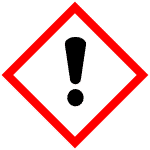
GHS07 |
|---|---|
| 信号词 | Warning |
| 危害声明 | H302 + H332 |
| 个人防护装备 | Eyeshields;Faceshields;full-face respirator (US);Gloves;multi-purpose combination respirator cartridge (US);type ABEK (EN14387) respirator filter |
| 危害码 (欧洲) | Xn:Harmful |
| 风险声明 (欧洲) | R10;R22 |
| 安全声明 (欧洲) | S23-S24/25-S36/37/39-S26-S16 |
| 危险品运输编码 | UN 1993 3/PG 3 |
| WGK德国 | 3 |
| RTECS号 | DA5600000 |
| 包装等级 | III |
| 危险类别 | 3 |
| 海关编码 | 29329970 |
Synonym: 1,2-(Methylenedioxy)benzene; 1,3-Dioxaindane SECTION 2 - COMPOSITION, INFORMATION ON INGREDIENTS
Risk Phrases: 10 22 SECTION 3 - HAZARDS IDENTIFICATION EMERGENCY OVERVIEW Flammable. Harmful if swallowed. Potential Health Effects Eye: May cause chemical conjunctivitis and corneal damage. Skin: May cause irritation and dermatitis. May cause cyanosis of the extremities.
Ingestion: May cause gastrointestinal irritation with nausea, vomiting and diarrhea. Ingestion of large amounts may cause CNS depression. Inhalation: Aspiration may lead to pulmonary edema. Vapors may cause dizziness or suffocation. May cause burning sensation in the chest. Chronic: No information found. SECTION 4 - FIRST AID MEASURES Eyes: Flush eyes with plenty of water for at least 15 minutes, occasionally lifting the upper and lower eyelids. Immediately flush eyes with plenty of water for at least 15 minutes, occasionally lifting the upper and lower eyelids. Get medical aid immediately. Skin: Get medical aid. Flush skin with plenty of water for at least 15 minutes while removing contaminated clothing and shoes. Remove contaminated clothing and shoes. Ingestion: If victim is conscious and alert, give 2-4 cupfuls of milk or water. Get medical aid immediately. Do NOT induce vomiting. If conscious and alert, rinse mouth and drink 2-4 cupfuls of milk or water. Inhalation: Get medical aid immediately. Remove from exposure and move to fresh air immediately. If not breathing, give artificial respiration. If breathing is difficult, give oxygen. Notes to Physician: SECTION 5 - FIRE FIGHTING MEASURES General Information: As in any fire, wear a self-contained breathing apparatus in pressure-demand, MSHA/NIOSH (approved or equivalent), and full protective gear. Vapors may form an explosive mixture with air. Vapors can travel to a source of ignition and flash back. Will burn if involved in a fire. Use water spray to keep fire-exposed containers cool. Containers may explode in the heat of a fire. Flammable liquid and vapor. Vapors may be heavier than air. They can spread along the ground and collect in low or confined areas. Extinguishing Media: For small fires, use dry chemical, carbon dioxide, water spray or alcohol-resistant foam. For large fires, use water spray, fog, or alcohol-resistant foam. Use water spray to cool fire-exposed containers. Water may be ineffective. Use agent most appropriate to extinguish fire. Do NOT use straight streams of water. SECTION 6 - ACCIDENTAL RELEASE MEASURES General Information: Use proper personal protective equipment as indicated in Section 8. Spills/Leaks: Absorb spill with inert material (e.g. vermiculite, sand or earth), then place in suitable container. Clean up spills immediately, observing precautions in the Protective Equipment section. Remove all sources of ignition. Use a spark-proof tool. A vapor suppressing foam may be used to reduce vapors. SECTION 7 - HANDLING and STORAGE Handling: Wash thoroughly after handling. Ground and bond containers when transferring material. Use spark-proof tools and explosion proof equipment. Avoid contact with eyes, skin, and clothing. Empty containers retain product residue, (liquid and/or vapor), and can be dangerous. Keep container tightly closed. Keep away from heat, sparks and flame. Avoid ingestion and inhalation. Do not pressurize, cut, weld, braze, solder, drill, grind, or expose empty containers to heat, sparks or open flames. Storage: Keep away from heat, sparks, and flame. Keep away from sources of ignition. Store in a cool, dry, well-ventilated area away from incompatible substances. Flammables-area. SECTION 8 - EXPOSURE CONTROLS, PERSONAL PROTECTION Engineering Controls: Use adequate general or local exhaust ventilation to keep airborne concentrations below the permissible exposure limits. Use process enclosure, local exhaust ventilation, or other engineering controls to control airborne levels. Use adequate general or local explosion-proof ventilation to keep airborne levels to acceptable levels. Exposure Limits CAS# 274-09-9: Personal Protective Equipment Eyes: Wear safety glasses and chemical goggles if splashing is possible. Skin: Wear appropriate protective gloves to prevent skin exposure. Clothing: Wear appropriate protective clothing to prevent skin exposure. Respirators: A respiratory protection program that meets OSHA's 29 CFR 1910.134 and ANSI Z88.2 requirements or European Standard EN 149 must be followed whenever workplace conditions warrant respirator use. Wear a NIOSH/MSHA or European Standard EN 149 approved full-facepiece airline respirator in the positive pressure mode with emergency escape provisions. SECTION 9 - PHYSICAL AND CHEMICAL PROPERTIES Physical State: Liquid Color: clear slightly yellow Odor: None reported. pH: Not available. Vapor Pressure: 12 mmHg @ 25 C Viscosity: Not available. Boiling Point: 172.0 - 173.0 deg C @ 760.00m Freezing/Melting Point: -18.00 - -0.00 deg C Autoignition Temperature: Not available. Flash Point: 55 deg C ( 131.00 deg F) Explosion Limits, lower: Not available. Explosion Limits, upper: Not available. Decomposition Temperature: Solubility in water: 0.2% (25 c) Specific Gravity/Density: 1.0640g/cm3 Molecular Formula: C7H6O2 Molecular Weight: 122.12 SECTION 10 - STABILITY AND REACTIVITY Chemical Stability: Stable under normal temperatures and pressures. Conditions to Avoid: Incompatible materials, ignition sources, excess heat, strong oxidants. Incompatibilities with Other Materials: Strong oxidizing agents. Hazardous Decomposition Products: Carbon monoxide, irritating and toxic fumes and gases, carbon dioxide. Hazardous Polymerization: Has not been reported. SECTION 11 - TOXICOLOGICAL INFORMATION RTECS#: CAS# 274-09-9: DA5600000 LD50/LC50: CAS# 274-09-9: Oral, mouse: LD50 = 1220 mg/kg; Oral, rat: LD50 = 580 mg/kg. Carcinogenicity: 1,3-Benzodioxole - Not listed by ACGIH, IARC, or NTP. Other: See actual entry in RTECS for complete information. SECTION 12 - ECOLOGICAL INFORMATION Other No information available. SECTION 13 - DISPOSAL CONSIDERATIONS Dispose of in a manner consistent with federal, state, and local regulations. SECTION 14 - TRANSPORT INFORMATION IATA Shipping Name: FLAMMABLE LIQUID, N.O.S. Hazard Class: 3 UN Number: 1993 Packing Group: III IMO Shipping Name: FLAMMABLE LIQUID, N.O.S. Hazard Class: 3.3 UN Number: 1993 Packing Group: III RID/ADR Shipping Name: FLAMMABLE LIQUID, N.O.S. Hazard Class: 3 UN Number: 1993 Packing group: III SECTION 15 - REGULATORY INFORMATION European/International Regulations European Labeling in Accordance with EC Directives Hazard Symbols: XN Risk Phrases: R 10 Flammable. R 22 Harmful if swallowed. Safety Phrases: S 9 Keep container in a well-ventilated place. S 16 Keep away from sources of ignition - No smoking. S 33 Take precautionary measures against static discharges. WGK (Water Danger/Protection) CAS# 274-09-9: No information available. Canada CAS# 274-09-9 is listed on Canada's NDSL List. CAS# 274-09-9 is not listed on Canada's Ingredient Disclosure List. US FEDERAL TSCA CAS# 274-09-9 is listed on the TSCA inventory. SECTION 16 - ADDITIONAL INFORMATION MSDS Creation Date: 9/02/1997 Revision #4 Date: 3/18/2003 The information above is believed to be accurate and represents the best information currently available to us. However, we make no warranty of merchantability or any other warranty, express or implied, with respect to such information, and we assume no liability resulting from its use. Users should make their own investigations to determine the suitability of the information for their particular purposes. In no way shall the company be liable for any claims, losses, or damages of any third party or for lost profits or any special, indirect, incidental, consequential or exemplary damages, howsoever arising, even if the company has been advised of the possibility of such damages. SECTION 16 - ADDITIONAL INFORMATION N/A |
| 上游产品 10 | |
|---|---|
| 下游产品 10 | |
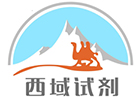


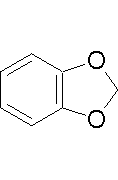

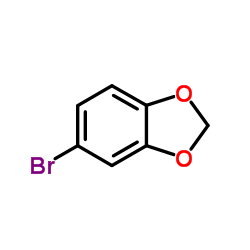



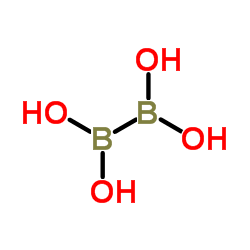

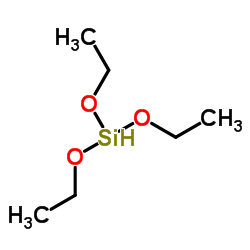

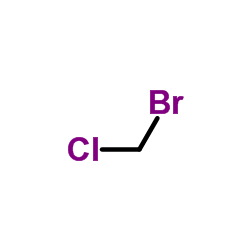
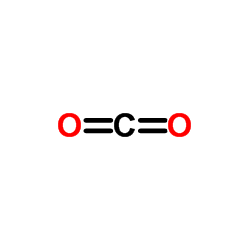
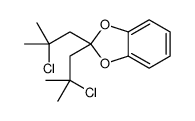
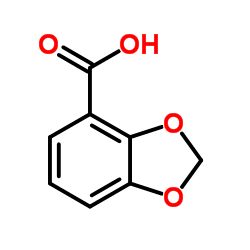

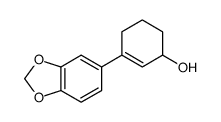
![5,6-bis[(6-bromo-1,3-benzodioxol-5-yl)methyl]-1,3-benzodioxole结构式](/20230522/141100-51-8.png)
![8-(1,3-苯并-5-二氧基)-1,4-二噁螺[4.5]癸烷-8-醇结构式](/20230522/150019-56-0.png)
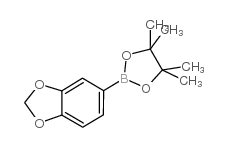
![2-(Benzo[d][1,3]dioxol-4-yl)-4,4,5,5-tetramethyl-1,3,2-dioxaborolane结构式](/20230522/1073339-10-2.png)
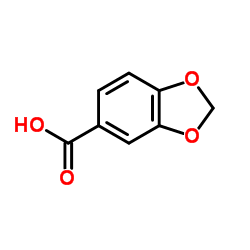





 浙公网安备 33010802013016号
浙公网安备 33010802013016号